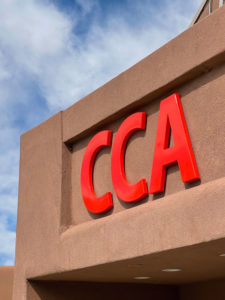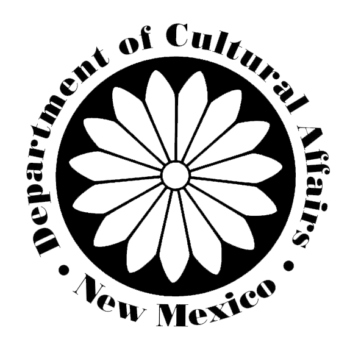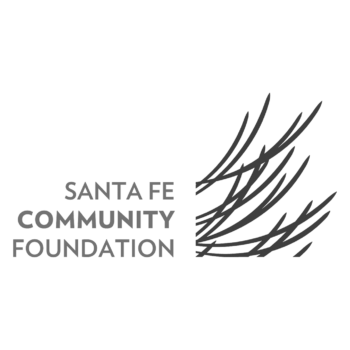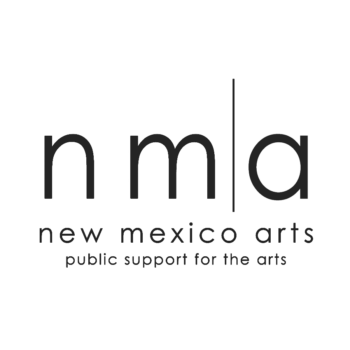
Purpose
The Center for Contemporary arts of Santa Fe (CCA) has initiated a Request for Proposal (RFP) process to identify a qualified consultant to guide and execute a strategic framework and comprehensive planning process.
CCA seeks a consultant who has demonstrated experience in successfully developing consensus-based strategic plans, has strong facilitation skills, has proven experience with non-profit strategic planning, and a strong understanding of the structure and purpose of arts organizations in New Mexico.
Forty+ years ago The Center for Contemporary Arts of Santa Fe (CCA) was founded as a grassroots organization with a vision to enhance our cultural landscape and better the lives of our neighbors in Santa Fe. That vision continues to thrive today, and we embrace all of the ways this mission continues to inform and grow our contribution to the vibrant cultural landscape of our unique community. From our inception in 1979, CCA has been a staple of the Santa Fe arts and culture scene, providing transformational experiences for the entire community. As one of the oldest artist-centered organizations in the American Southwest, CCA draws more than 65,000 visitors annually for independent films, exhibitions, performances and education/public programs.
CCA closed its doors in March of 2020 and reopened in July 2021 due to COVID-19. With a new mission and galvanized staff and Board, CCA is ready to move into its future with the help of a strategic plan.
CCA is governed by a Board of Directors (10 officers) representing a portion of the Santa Fe community. The Board is led by an Executive Committee (4 officers) who provide policy direction and work closely with the Executive Director to oversee implementation. CCA currently employs eight full-time staff members, nine part-time, and a marketing consultant. Since COVID-19, CCA has experienced significant changes to the organizational structure including the hiring of a new executive director, board member turnover, staff reductions, fluctuating resources from individual donors and foundations, and decreased reliance on the previous earned income model.
To help capitalize on these changes, CCA is looking for a consultant to create a 5-year strategic plan, inclusive of phase one of a campus Master Plan, through a comprehensive and participatory process.
We expect the project to include the following:
- Project management
- Design, research, and execution of a five-year strategic analysis and comprehensive planning process
- Develop an actionable strategic plan, including a projected budget for implementation
- Develop recommendations regarding the plan’s implementation and support structure
It is expected that these tasks will be accomplished through a combination of activities, including:
- Background research by consultant on CCA history and current leadership team, including environmental scan of organization, identified audiences and opportunities ahead.
- Benchmarking CCA with other similar sized non-profits or additional organizations with similar focus.
- Focus groups, interviews with relevant outside professionals, surveys and/or any other method that will be useful in receiving partner and community input.
- Facilitated group meetings with the board and staff to create consensus regarding the strategic plan.
While CCA seeks the consultant’s recommendations regarding the best process to develop an actionable strategic plan, the organization envisions the scope of work being completed in four stages.
Stage 1. Discovery – Framework and key goals with CCA Board and Staff Leadership
This stage includes consensus building among the CCA Leadership to discover shared identity of CCA and strategic goals that are clearly stated, are compelling, are timely, are diverse, describe a clear and present need, motivates people to act, and are a worthwhile challenge.
Stage 2. Research and Validation – Needs assessment, SWOT analysis, research, etc.
This stage should produce the substantive documentation and solutions needed for validation of discovered ideas and key goals and inform the strategic planning process. This research will be inclusive of the Santa Fe community demographics, the New Mexico arts environment, the current trajectory of cinemas, and the development of a campus Master plan.
Stage 3. Identify strategic goals and write the strategic plan, including detailed budget
After the discovery and research phases, stage 3 entails the identification of realistic key strategic pathways and the development of an actionable strategic plan that will serve as the overall blueprint for our work. This plan should include:
- An executive summary
- A comprehensive, detailed plan that identifies shared concepts, goals, objectives, strategies, tactics, responsible partners and their roles, measures, and outcomes
- Resource development strategies inclusive of development and long-term financial sustainability
Stage 4. Development of implementation recommendations
This stage includes the development of recommendations regarding the implementation phase of CCA’s work. Included within this phase should be a detailed budget to implement the plan and methods of measuring successful implementation.
Proposal Format
To best evaluate the ability of the consultant to meet our goals, please include the following in your proposal:
- Examples of similar projects
- Your approach to strategic planning
- A summary of strategic planning experience
- Three client references
- Suggested project timeline with major tasks and milestones
- Project budget by line item
- Sample project plan
- Identify who will be involved on your project team, their role, and including their relevant experience.
The proposal must include the following:
General Information
CCA understands that the scope of work requested may be conducted by a single consultant, a consultant group, or by a partnership of consultants. The proposal should provide the name, title, and contact information for each person engaged in the project. If a consultant group or partnership of consultants, the proposal should indicate who will serve as the point person.
Consultant Qualifications and Roles
The proposal must describe the consultant’s qualifications to conduct the RFP scope of work activities, expertise, knowledge, and experience. Experience should include examples of conducting similar or related work (i.e., working with other collaborative or collective impact initiatives to create a strategic vision and strategic plan), as well as experience working with non-profits, cinemas and museums.
To accomplish the scope requested, the consultant will need to possess the following qualifications:
- Experience at successfully developing consensus-based strategic plans
- Knowledgeable of collective impact or collaborative strategic initiatives
- Strong facilitation skills
- Experience at creating a neutral environment for, and soliciting input from, individuals from various sectors
- Experience at gathering and utilizing data to inform the strategic planning process
- Knowledge of marketing, communications and branding
- Ability to constructively challenge key participants
- Experience inspiring others to think innovatively
- Project management experience
Work Plan
The proposal should contain a detailed description of the activities to be conducted by the consultant to complete the requested scope of work, including:
- the specific activities to be conducted at each stage,
- a timeline for the activities at each stage,
- milestones and deliverables tied to those activities, and
- a detailed budget for each task, along with a proposed payment schedule tied to project milestones and/or deliverables.
Process for Proposal Submission and Evaluation
- Closing Submission Date: Proposals are due by 5:00 PM on Thursday, June 30, 2022.
- Inquiries: Inquiries concerning this RFP should be directed to Danyelle Means (contact information below) no later than Friday, June 24, 2022.
- Conditions of Proposal: All costs incurred in the preparation of a response to this RFP are the responsibility of the bidder and will not be reimbursed by CCA.
- Submission Instructions: Proposals should be submitted in PDF format via CCA website or via email to Danyelle @ ccasantafe.org before the closing submission date. If the file is too large for email, a link to the file should be provided. Late arrivals will not be accepted. Mail submissions will not be accepted. It is the responsibility of the bidder to ensure that the response is received by CCA by the closing submission date. A response may be judged non-responsive and excluded for further consideration if it is not received by the deadline or does not follow the specified format.
- Right to Reject: CCA reserves the right, in its sole discretion, to reject any and all responses received in response to this RFP. A contract for the accepted response will be based upon the factors described in this RFP.
- Small Businesses, Minority-Owned Firms, and Women’s Enterprises: CCA will make efforts to utilize small businesses, women’s business enterprises, and/or minority-owned firms.
- Confidentiality: If the bidder deems any material submitted to be proprietary or confidential, that must be indicated in the relevant section(s) of the response.
- Conflict of Interest: The Bidder must disclose, in an exhibit to the proposal, any possible conflicts of interest that may result from the award of the Contract or the services provided under the Contract.
- Notification of Selection and Timeline: It is expected that a bidder will be selected within two to three weeks of the closing submission date, although this timeline is subject to change. CCA reserves the right to cancel this RFP at any time. Upon conclusion of negotiations with the successful bidder, all bidders submitting responses to this RFP will be informed in writing of the name of the successful firm or individual.
- Criteria for Selection: CCA will select the proposal which it feels will deliver the highest quality deliverable at the best value. Proposals will be initially reviewed by the Executive Director. Selection of consultant will be made by the Executive Committee with input from the Executive Director. Price will be a significant, but not the only, criteria in evaluating the proposals. Consideration will also be given to the following:
- Ability of the bidder to provide all aspects of the proposal.
- Compliance of the consultant and proposal with the project requirements outlined above.
- The extent to which the proposed deliverable meets the scope and goals outlined in the RFP.
- Experience with similar organizations and portfolio of work.
The award will be made to the qualified bidder whose proposal is most advantageous to CCA with price and other factors considered. CCA, in its sole discretion, may request proposal presentations by meeting with any or all bidders to clarify or negotiate modifications to proposals. However, CCA reserves the right to make an award without further discussion of the proposals submitted. Therefore, proposals should be submitted initially on the most favorable terms, from both technical and price standpoints, that the bidder can propose.






